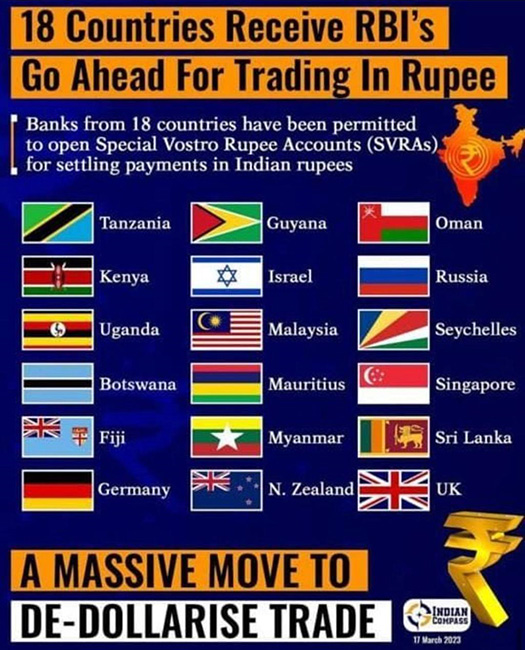
Brazil and China have reportedly struck a deal to ditch the U.S. dollar in favor of their own currencies in trade transactions.
The announced deal will enable China and Brazil to carry out trade and financial transactions directly, exchanging yuan for reais – or vice versa – rather than first converting their currencies to the U.S. dollar.
The Brazilian Trade and Investment Promotion Agency (ApexBrasil) said the new arrangement is expected to "reduce costs" and "promote even greater bilateral trade and facilitate investment."
China is Brazil’s largest trading partner, accounting for more than a fifth of all imports, followed by the United States, according to the latest figures. China is also Brazil’s largest export market, accounting for more than a third of all exports.
China overtook the United States as Brazil’s top trading partner in 2009. Today, Brazil is the largest recipient of Chinese investment in Latin America, driven by spending on high-tension electricity transmission lines and oil extraction.
Brazilian President Luiz da Silva, sworn in on January, has moved to strengthen ties with Beijing after a period of rocky relations under his predecessor, Jair Bolsonaro, who used anti-China rhetoric on the campaign trail and in office.

An official meeting of all ASEAN Finance Ministers and Central Bank Governors kicked off in Indonesia. Top of the agenda are discussions to reduce dependence on the US Dollar, Euro, Yen, and British Pound from financial transactions and move to settlements in local currencies.
The meeting discussed efforts to reduce dependence on major currencies through the Local Currency Transaction (LCT) scheme. This is an extension of the previous Local Currency Settlement (LCS) scheme that has already begun to be implemented between ASEAN members.
This means that an ASEAN cross-border digital payment system would be expanded further and allow ASEAN states to use local currencies for trade. An agreement on such cooperation was reached between Indonesia, Malaysia, Singapore, the Philippines, and Thailand in November 2022. This follows from Indonesia’s banking regulator, stating on March 27 that the Bank of Indonesia is preparing to introduce its own domestic payment system.
Indonesian President Joko Widodo has urged regional administrations to start using credit cards issued by local banks and gradually stop using foreign payment systems. He argued that Indonesia needed to shield itself from geopolitical disruptions, citing the sanctions targeting Russia’s financial sector from the US, EU, and their allies over the conflict in Ukraine.
Moving away from Western payment systems is necessary to protect transactions from “possible geopolitical repercussions,” Widodo said.
Of the ASEAN nations, just Singapore has enforced sanctions on Russia, while all other ASEAN nations continue to trade with the country. There has been alarm at being caught up in US-led secondary sanctions, as are short to impact Central and South Asia countries involved in cotton manufacturing, a major industry in the region employing millions of people.

Goldman says: “Are we approaching the end of the dollar reserve currency system.”
read more in our Telegram-channel https://t.me/The_International_Affairs

 9:52 01.04.2023 •
9:52 01.04.2023 •






















